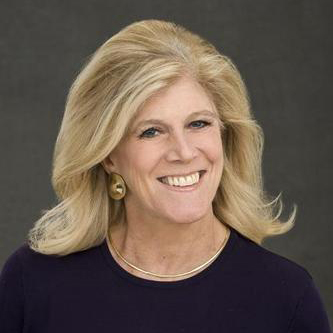
President Donald Trump meets with Republican senators about health care in the East Room of the White House in Washington, DC on June 27, 2017. Seated with him are Sen. Susan Collins (R-ME) (left) and Sen. Lisa Murkowski (R-AK) (right). (Photo by Jabin Botsford/The Washington Post via Getty Images)
I see that Planned Parenthood is sending a thank-you gift to the US senators who voted down Trumpcare — all 48 Democrats and 3 Republicans who understood that even the so-called “skinny” iteration was an anemic sham. Each senator earned a “superhero cape” emblazoned with #IStandWithPP, because by killing the bill, they shattered — among other nonsense — the myth that community health centers could replace a defunded Planned Parenthood.
So all hail the new superheroes, especially the two Republican women — Maine’s Susan Collins and Alaska’s Lisa Murkowski — whose staunch resistance to the entreaties and insults from their colleagues in the majority has made them profiles in courage.
"Sen. Murkowski thank you for saving our care" over anchorage rn. @MSNBC pic.twitter.com/jOG77JavGI
— Elizabeth Love (@lizlove000) July 29, 2017
Yes, Sen. John McCain’s late-hour thumbs-down won him the Drama King award, finally forcing his party to snatch defeat from the ugly jaws of victorious deception. And his earlier speech calling for the “regular order” of bipartisan deliberation was a noble plea for historical accommodation.
But it was the women who set up the end game; the women who opposed every version of the desperate nonplan. And they did it after being summarily excluded from the working group that created it. And they did it despite the kinds of sexist sneers that have threatened every female who has tried to break into the male world.
Back when Collins and Murkowski were joined by West Virginia Sen. Shelley Moore Capito in opposing an early version of the bill, Texas Rep. Blake Farenthold railed against the “female senators from the Northeast” and channeled Aaron Burr, swaggering on the radio that if they were a man, he might dare “him” to a duel. The geographically challenged Farenthold later claimed, Trump style, that he was only kidding, ha ha.
Georgia’s Rep. Earl L. “Buddy” Carter, when asked about the women’s opposition, urged someone to invade the Senate and “snatch a knot in their ass,” a quaint Southern reference to the sort of punishment apparently usually reserved only for acceptable miscreants like one’s children. Carter’s office later claimed he meant that all anti-Trumpcare senators should be snatched.
Earlier, the president, who has had his own problems with snatching (or grabbing), had scolded Murkowski for her determination to represent her constituents, not her president:
Senator @lisamurkowski of the Great State of Alaska really let the Republicans, and our country, down yesterday. Too bad!
— Donald J. Trump (@realDonaldTrump) July 26, 2017
Later that day, according to reports, the Interior Secretary called Murkowski’s office to threaten repercussions for Alaska if she didn’t support health care.
All in a bill’s work, as the women, unflinching, might agree. They held firm because they were listening to the people they represent, and because their judgment was solid. And because, well, to paraphrase Hamilton, women — we get the job done.
In Congress, it is the female members who meet on common ground outside the chambers and frequently have each others’ backs. They are more likely to reach across the aisle, and to work out bipartisan compromises. And the presence of women in both the Senate and the House has led to more concern about issues important to other women: education and, oh right, health care, for instance.
So we need more women elected to office, right? When women legislate, the laws are good and equitable, right?
Well, sometimes. In honoring and thanking Collins and Murkowski this week, let’s not lose sight of the big picture.
They are only two of five female Republican senators currently serving. In other words, while Collins and Murkowski joined 48 Democrats (including 16 female senators) in voting Trumpcare down, three women finally voted for it: Sen. Capito, Iowa’s Sen. Joni Ernst, and Nebraska’s Deb Fischer. Percentage-wise, the women did way better than the men: only 60 percent approved, compared to more than 97 percent of the Republican men. But it’s still dismal.
And let’s not forget that more than half of white women voted for Trump in the presidential election.
With rare exceptions in American history, women have generally not voted in a bloc for any candidate or issue. The sizable gender gaps that helped elect Bill Clinton and Barack Obama, are only occasional.
So no, we’re not yet in a position to claim that women will always make the difference. Or that female representation will always lead to a better world. But Collins and Murkowski surely outdid all but one of their male colleagues on this one. They deserve every single cheer and Tweet.
Because this time, they made it happen. Because every little incremental step means we are closer to full equality.
And because it’s clear that we live in a society that is hungry for genuine female heroes. So ravenous, even the poorly depicted new Wonder Woman — played as a mildly ambitious and thoroughly athletic beauty stuck in a plotless shoot-em-up — has been gushed over as the feminist icon of the summer.
We can do much better with the flesh-and-blood female superheroes we choose to lead us. Making them part of the “regular order” is our best chance for sanity. Wear your capes proudly, ladies. And let’s elect more of you.




